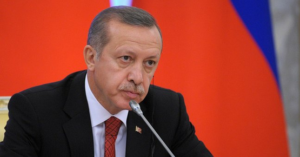Nearly a month and a half before the most critical presidential and parliamentary elections in Turkey’s modern history, it is still too early to make a guess as to who will win: all indicators show that May 14 will be an extremely tight race. The results may even be inconclusive: there may be chaos, vote rigging, allegations and objections from both sides, the electoral board having to struggle with which side it should politically favor, potential re-runs in disputed districts, further disputes and even potential street violence.
An overall re-vote is also one of the possibilities. Another is that the country’s Islamist strongman, President Recep Tayyip Erdoğan, battling for his survival after 21 corrupt and autocratic years in power, wins the presidential race but that his party loses its parliamentary majority. This result will mean governmental and administrative chaos.
Trump indicted after Manhattan DA probe for hush money payments
Erdoğan’s miraculous appeal to tens of millions of conservative and nationalist Turks seems to be waning. The economy is reeling from double-digit inflation rates, measured, officially, at 55% in February. The recent devastating twin earthquakes in the country’s southeast will cost Turkey’s ailing economy an additional $104 billion. Corruption and nepotism are rampant, while the average Turk earns barely $9,000 a year. Another key vulnerability for the economy is the current account deficit. It jumped 43% year-on-year to $9.85 billion in January, the highest monthly level since the data was first collected in 1984. The Turkish lira has lost about 60% of its value against the US dollar since March 2021.
Read more: Gatestone Institute
Ask me anything
Explore related questions





